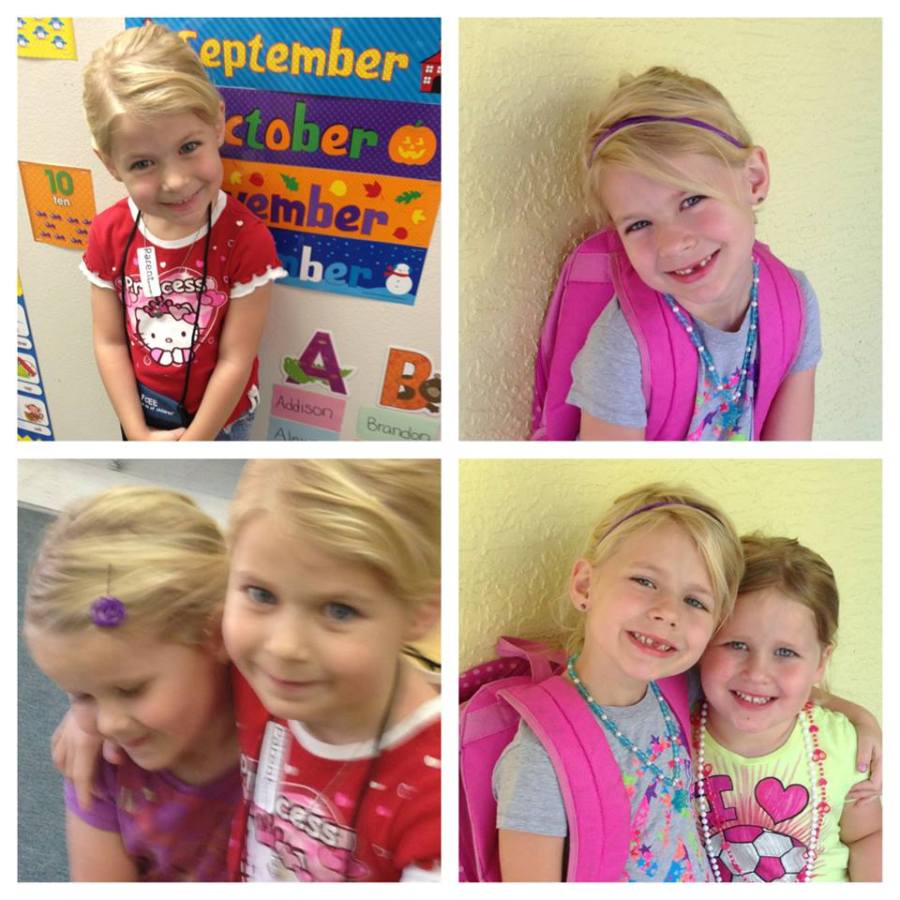By: Zac Leonard
3/18/2016
Remember the first day of kindergarten? Your Hello Kitty Backpack full of supplies, matching lunchbox filled with the required snacks and drinks to get through the day! It was the most amazing feeling going out with friends to learn!! Discovering how the world words, and how we can share it with others!

I’m sitting in a staff meeting led by my school’s administrative team; now when you work for Jason Koon, you never know how that staff meeting may look. Jason is the quintessential connected leader; constantly sharing ideas and empowering us to put them into practice. So as I sit in the media center, one eye on my iPad and the other on my coffee, Jason drops this little line on us….

… From outside the education world, the quote may seem simplistic or obvious but in the context of our school, it is profound. We are currently living in an educational environment where the motivating factor that was the desire for quality grades on student report cards falls flat for many of the students we serve. The old carrot and stick idea needs a makeover; we have the stick but can’t seem to find an effective carrot. An educational system void of motivation leads to apathy with students and frustration with teachers. The resulting environment is one where grades are a punitive measure of how well the students know “how to play school” and not on the key concepts mastered. Teachers and students are currently in a Cold War of sorts, each holding their position, dug in and waiting for the opposition to either launch a strike or cave to demands. And this is the context in which Jason is presenting the idea that if we remove all reasons that a student would not complete an assignment they will have opportunities to see the benefit of putting the effort in their studies.
Emsa Caskey’s story exemplifies how erasing barriers in the classroom leads to student achievement. Over the first five years of his career Emsa viewed his grade distribution as a badge of honor; the fewer the A’s and B’s the more rigorous his curriculum appeared to be. However, in the past few months, he has begun meeting with students weekly to discuss their grades in his class, how they are performing, and what he expects of them moving forward. He then ASKS THE STUDENTS how they would like to learn. Some ask to make videos using Touchcast, some want to create Sketchnote posters, some want to read a passage and answer some questions. The moment it clicked for Emsa came when a perpetually truant student started consistently coming to school. When asked about his new found desire to come to school, the young man stated, “I can’t miss Mr. Caskey’s class! He’s the only person who is interested in how I want to learn.” This student had gone through 9 years of school, from the first day of kindergarten where he was excited to be part of something special, to the constant reminder that he wasn’t what his teachers wanted in a student. Emsa defined the barriers that other teachers built and used as an excuse to give up, and completely removed them. He ignited the passion for learning that this young man hadn’t felt in many years, and opened his mind to being something more than an 8th grade drop out. All of this was done by simply asking the student how they preferred to learn.
The misconception is that removing the reasons students don’t succeed will devalue the education system, ultimately causing students to be unprepared for their high school course load and , ultimately, the “real world”. As we can see from the example with Mr. Caskey, this is just not the case. Although we all know that this young man isn’t “fixed”, that he will consistently struggle when asked to produce evidence of his learning in a way that doesn’t cooperate with his brain, the difference is that now he has memories of a time when he had achieved success in the classroom. Be honest with yourself. How often have you assigned something students didn’t complete, got frustrated, taken it personally, and, as a result, assigned a lower grade? We hear it all the time in the hallways, “little Zac will not do his homework, he is so consumed with those video games and that social media that he doesn’t focus on what’s important! Well until he wakes up, his grades will reflect that!”
So I challenge you to say, “I see that barrier, but what would I do if it wasn’t there?” How can we respond to the needs of our students without penalizing their parents, their difficult socio-economic situation, their laziness, or the fact that at 16 and in the 8th grade they have given up? It is only achievable through being given the permission to break the paradigm and do whatever is needed to make our kids successful. In the book Innovator’s Mindset, George Cuoros presents a quote he gained from Harriet Rubin. 
Harriet Rubin. In a very real way, by shifting the mindset from punitive grading to opening the dialogue between the student and teacher to personalize the learning experience for each student we “unleash” the opportunity to succeed and grant it to all students.
This transition hasn’t been without its bumps. This week I presented a lesson to my students where they would create proof of mastery for a benchmark, and my kids didn’t know what to do. They have been programmed to fill in the blanks, do the requirements, “get it done”, and get the grade. When confronted with the concept of proving their mastery to me, they pushed back; and like the Israelites in the desert following their freedom from Egypt, some wanted to go back to the way it had always been.
Although we long for the comfort of what we know, we have to embrace the fact that we no longer live in the culture we grew up in. What are we doing in our classrooms for us, and what are we doing for our students? We have to focus our instruction, our planning, and our collaboration on what will best prepare our students for the world they will create.
Not everyone will agree, but we must not give up. Pushing ourselves and our students towards lifelong success, not just the grade to move them to the next stage of life, isn’t only our responsibility but will ignite the passion for learning students had on the first day of kindergarten.
